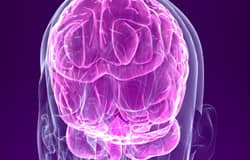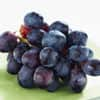
Newsletter
Newsletter
Hypothalamus Found To Play Important Role In Aging
Hypothalamus found to play important role in aging
Tuesday, May 7, 2013. A small gland in the brain appears to have a powerful role in the aging process, according to research reported online on May 1, 2013 in the journal Nature. "In this study, we have focused on the hypothalamus, a key brain region that is crucial for the neuroendocrine interaction between the central nervous system and the periphery," write authors Dongsheng Cai, MD, PhD and his colleagues at Yeshiva University's Albert Einstein College of Medicine in their introduction to the article. "We asked whether the hypothalamus may have a fundamental role in aging development and lifespan control, in addition to its critical involvement in basic life-supporting functions such as growth, reproduction and metabolism." Dr Cai's team evaluated inflammatory changes in the hypothalamus that have been associated with metabolic syndrome: a cluster of symptoms including glucose intolerance and central obesity which occur with greater frequency during aging. "As people age, you can detect inflammatory changes in various tissues," explained Dr Cai, who is a professor of molecular pharmacology at the Einstein College of Medicine. "Inflammation is also involved in various age-related diseases, such as metabolic syndrome, cardiovascular disease, neurological disease and many types of cancer." They found that activation in the hypothalamus of a protein known as nuclear factor kappa-B (NF-kB), which is involved in inflammation, accelerated aging in mice. "Inflammation involves hundreds of molecules, and NF-κB sits right at the center of that regulatory map," Dr Cai remarked. "The mice showed a decrease in muscle strength and size, in skin thickness, and in their ability to learn — all indicators of aging. Activating this pathway promoted systemic aging that shortened the lifespan." The researchers determined that activation of NF-kB reduced the synthesis of gonadotropin-releasing hormone (GnRH, which is involved with reproduction) by the gland. By injecting GnRH into the hypothalamus of older mice, the animals were protected from age-related impairment of neurogenesis--the formation of new brain neurons. Long term peripheral administration of the hormone resulted in a reduction in some of the signs of aging, including cognitive decline. In another experiment with mice in which the NF-kB pathway was inhibited, signs of aging were slowed in comparison with normal mice, and the modified animals experienced a 23% longer median lifespan and a 20% longer maximum lifespan in comparison with normal animals. "Scientists have long wondered whether aging occurs independently in the body's various tissues or if it could be actively regulated by an organ in the body," Dr Cai noted. "It's clear from our study that many aspects of aging are controlled by the hypothalamus. What's exciting is that it's possible — at least in mice — to alter signaling within the hypothalamus to slow down the aging process and increase longevity." |
||||||||||||||||
 |
||||||||||||||||
|
||||||||||||||||
|
||||||||||||||||
 |
||||||||||||||||
|
||||||||||||||||
|
||||||||||||||||
The latest news on aging, nutrition, and vitamins
Lab
Testing
How Life Extension lab testing works









